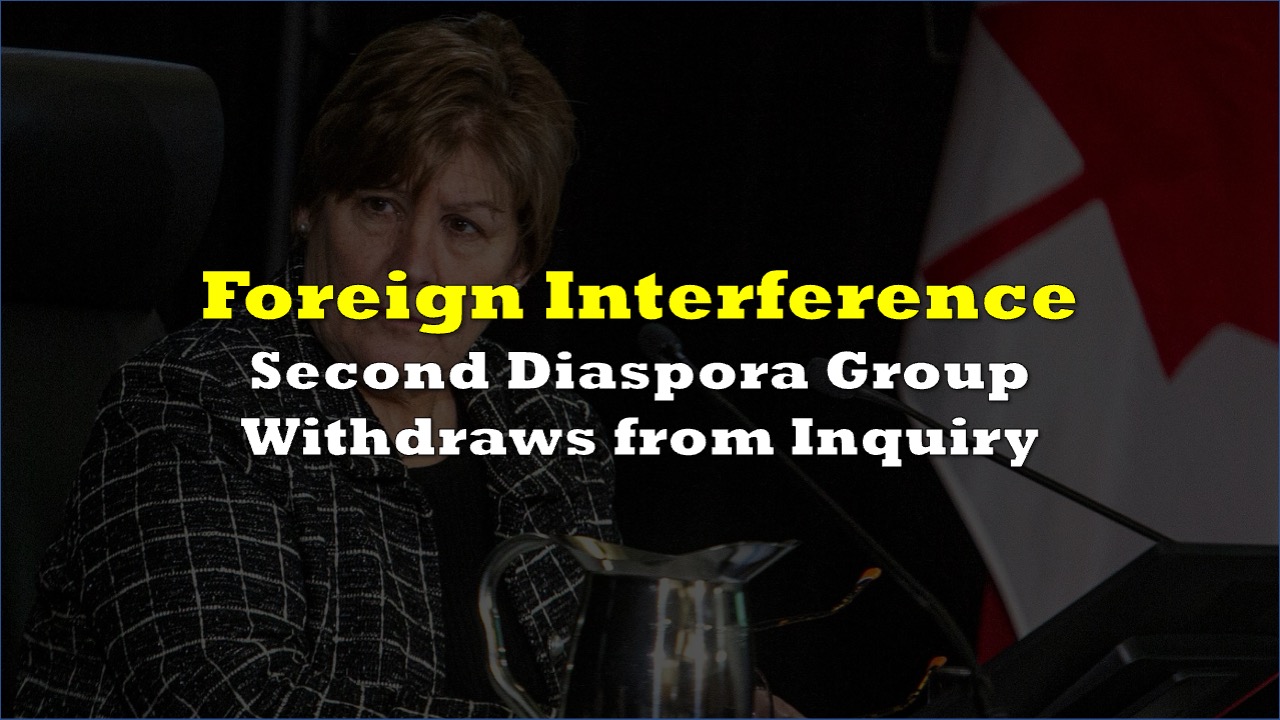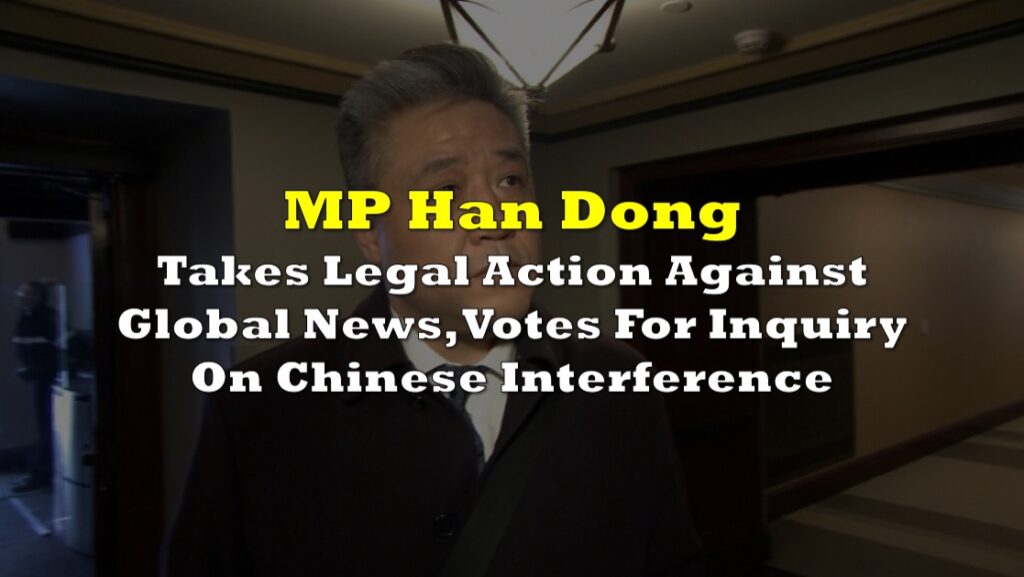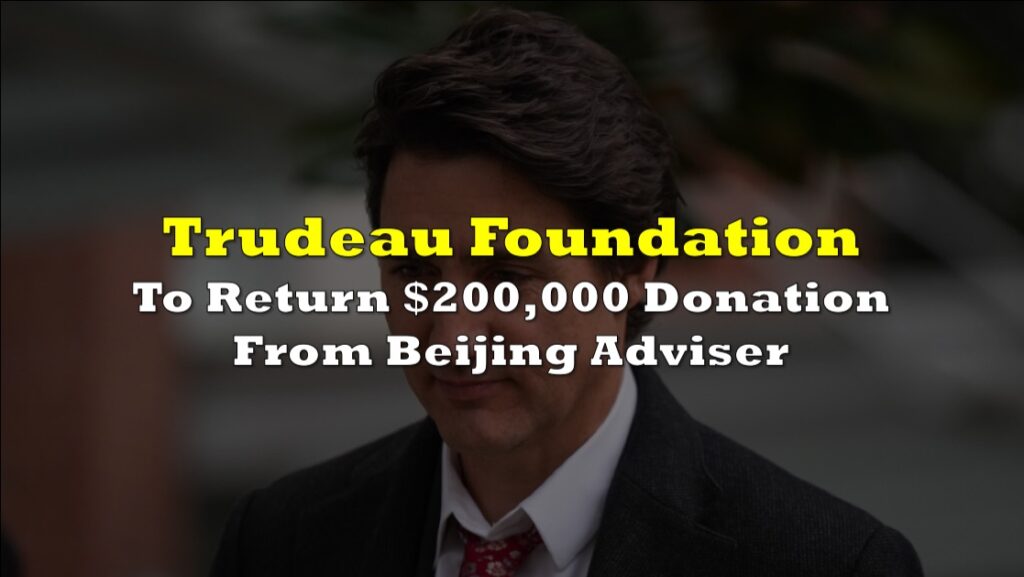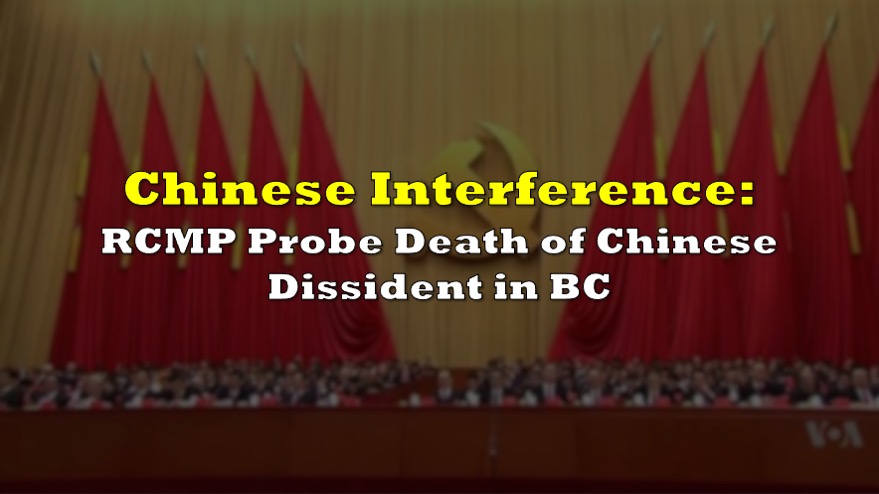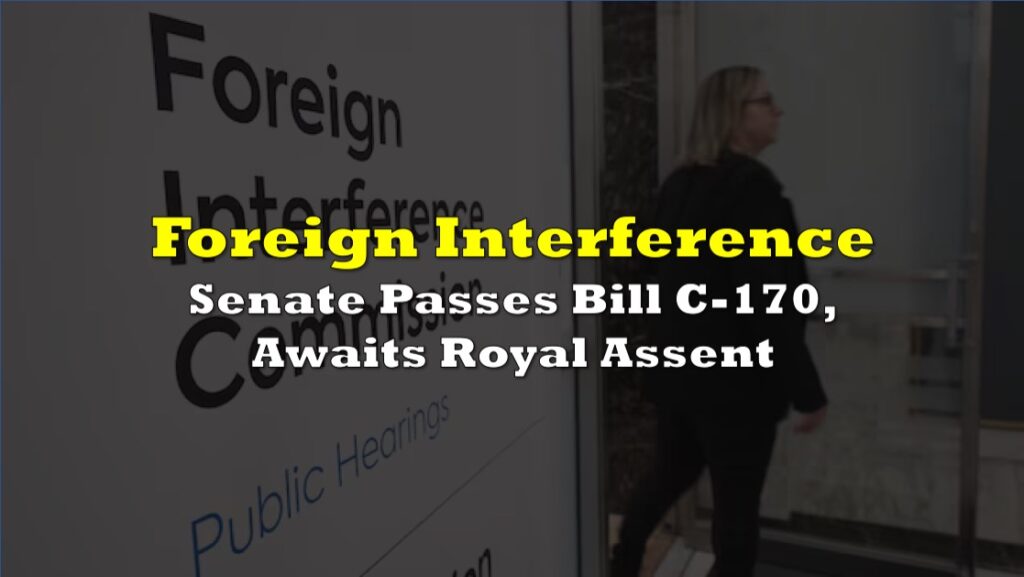The Canadian Friends of Hong Kong (CFHK) have announced a boycott of the Foreign Interference Commission Inquiry. This makes them the second group, after the Uyghur Human Rights Project (UHRP), to withdraw from the inquiry citing “grave concerns regarding the objectivity and the security integrity.”
The decision stems from the Commission’s choice to grant standing to individuals suspected of having close ties to the Chinese Consulates and their proxies, including MP Han Dong and Michael Chan with full standing, and Senator Yuen Pau Woo with intervener standing.
We at CFHK fear the inquiry itself might be targeted as a tool for foreign interference. Every single word is a piece of info & there are people who are good at analyzing such info & data, posing national security threats to Canada. @nationalpost @IvyVFHK https://t.co/tsqZDpubRV
— Canadian Friends of Hong Kong (@CanFriendsHK) February 21, 2024
The group argues that such decisions compromise the inquiry’s integrity and potentially endanger national security by allowing those with alleged ties to the Chinese government access to sensitive information.
@CanFriendsHK like @UyghurProject have made a difficult decision
— Dean Baxendale (@DMCBaxendale) February 20, 2024
I have read, documented, verified, and published hundreds of accounts of Transnational Repression all over the world so giving standing to what many consider to be CCP proxies wasn’t wisehttps://t.co/4vcquHtVDW
“Even if documents are heavily redacted, just the titles of the documents, if seen by our adversaries, will give them a target as they will know what to look for,” they wrote in the statement.
The inquiry, designed to capture a wide range of information on foreign interference, could inadvertently expose the methodologies, contacts, and strategic approaches used by Canadian activists and security experts to monitor foreign infiltration and influence. This, according to the CFHK, could provide a strategic map to adversaries, undermining efforts to protect Canada’s sovereignty and democratic institutions.
“Together, these bits and pieces of information will provide a detailed strategic map, exposing how Canadian authorities, non-governmental organizations, grassroots groups, and individuals have attempted to defend Canada’s sovereignty and democratic institutions. This is powerful knowledge; it is not the type of information that should be available to the perpetrators of foreign interference.”
The statement also quoted observations from China experts including Margaret McCuaig-Johnston, Board Director of the China Strategic Risks Institute, and Dr. Charles Burton, political scientist and formerly Counsellor at Canada’s Embassy to China. Both pointed out the commission’s apparent lack of competence.
“It is troubling that the Commission has the power by law to subpoena witnesses to give testimony under oath. Canadians who prefer not to participate in Inquiry if called are nevertheless compelled to respond to questions posed by any participants with standing. Thus the coerced answers to these questions could compromise their safety and endanger family in China,” Burton said.
He added that while Commissioner Marie-Josée Hogue has promised that the commission would take measures to mitigate this threat on an ad hoc basis, “the Commission’s yawning lack of competent expertise on Chinese Communist Party operations in Canada does not inspire confidence.”
McCuaig-Johnston said that the two groups’ withdrawal from the inquiry “is a reflection of the lack of expertise on China or Chinese diaspora among the inquiry’s counsel and advisors that they would not see the risks of this. Allowing those identified in national security documents as being potentially compromised to have full standing to access sensitive information and even cross-examine witnesses including diaspora victims is itself unjust.”
“Justice Hogue’s vague assurances and inquiry procedures are not sufficient protection,” McCuaig-Johnston added.
This government was never going to allow a genuine public inquiry into the influence of Beijing’s friends, proxies and agents at the centres of power in Canada. It would have to start with the PMO. https://t.co/gzXMuXkeAs
— Terry Glavin 格立文 (@TerryGlavin) February 20, 2024
Information for this story was found via CFHK, The National Post, The Globe and Mail, and the sources and companies mentioned. The author has no securities or affiliations related to the organizations discussed. Not a recommendation to buy or sell. Always do additional research and consult a professional before purchasing a security. The author holds no licenses.

